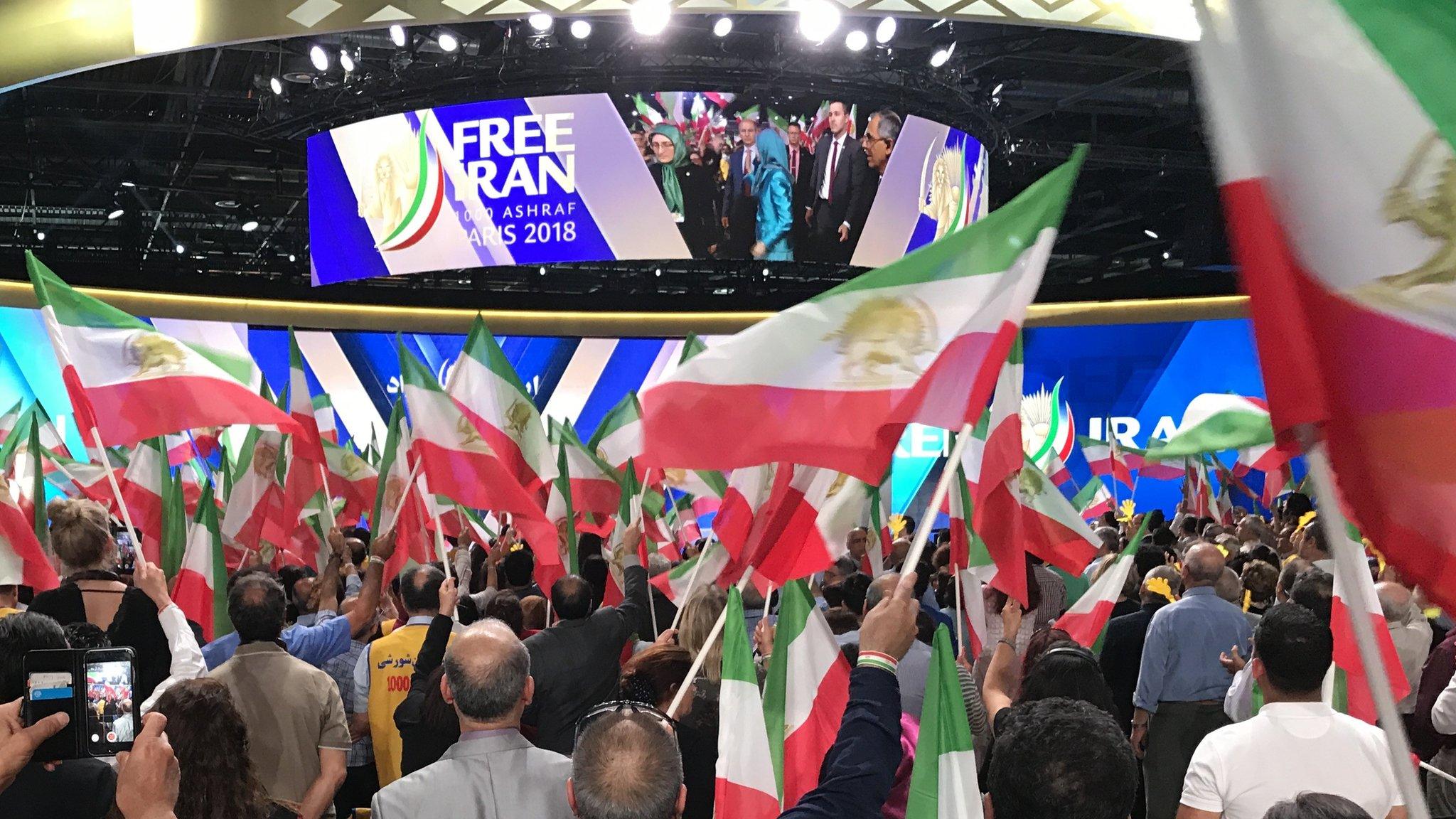Olivier Vandecasteele: Belgian aid worker freed in exchange for Iranian diplomat
- Published
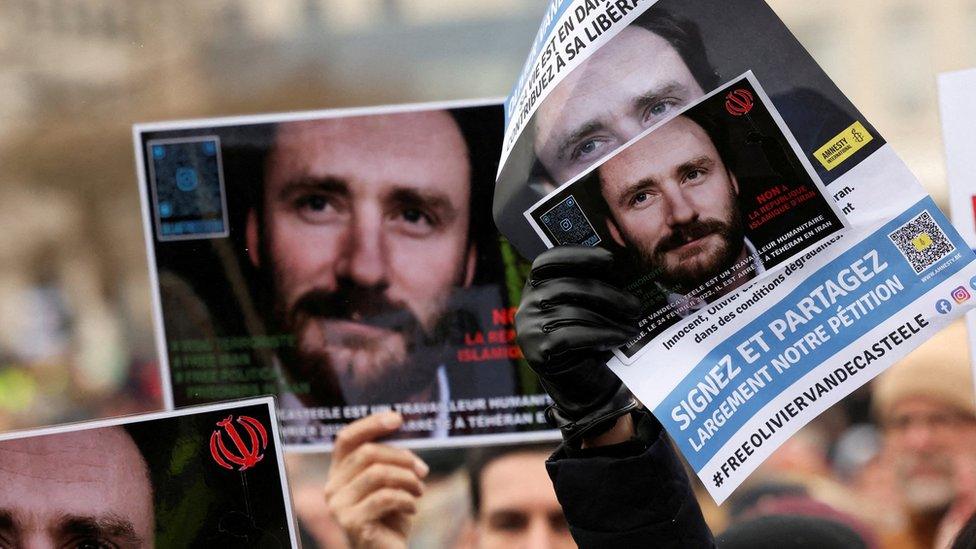
A court in Iran sentenced Olivier Vandecasteele to 40 years in prison after convicting him on spying charges
Belgium and Iran have carried out a prisoner swap involving Belgian aid worker Olivier Vandecasteele and Iranian diplomat Assadollah Assadi.
The Belgian prime minister announced that Mr Vandecasteele was currently flying home "after 455 days in prison in Tehran in unbearable conditions".
Mr Assadi, who Iran's foreign minister said was "illegally detained" for two years, has arrived in Tehran.
The two men were first transported to Oman, which brokered the exchange.
Mr Vandecasteele was sentenced to 40 years in prison and 74 lashes in January after an Iranian court convicted him of espionage and several other charges. He denied any wrongdoing, while Belgium said the charges were "fabricated" and amounted to retribution for Mr Assadi's sentence.
Mr Assadi was jailed for 20 years by a court in Belgium, which found him guilty of plotting a bomb attack on an exiled Iranian opposition group's rally in France. Iran insisted his arrest, trial and sentencing violated international law.
Belgium's Prime Minister Alexander de Croo announced that Mr Vandecasteele was flown on Thursday night from Iran to Oman, where he was cared for by Belgian military personnel and diplomats, and underwent a number of medical examinations.
"If everything goes according to plan, he will be with us this evening. Free at last!" he said.
"For me, the choice has always been clear. Olivier's life has always come first. It's a responsibility that I take upon myself, that I accept. In Belgium, we do not abandon anyone."
Mr Vandecasteele's family and friends also celebrated.
"Olivier is free!" they wrote on a Twitter account set up to campaign on his behalf, above a night-time photograph showing him standing beside an aircraft. "We're waiting for you!"
Allow X content?
This article contains content provided by X. We ask for your permission before anything is loaded, as they may be using cookies and other technologies. You may want to read X’s cookie policy, external and privacy policy, external before accepting. To view this content choose ‘accept and continue’.

Mr Vandecasteele worked for six years in Iran for the Norwegian Refugee Council and other aid agencies.
He left the country in 2021, but returned in February 2022 against Belgian government advice in order to close down his apartment in Tehran. During the visit, he was arrested by the Revolutionary Guards and taken to Tehran's Evin prison.
In November, he told Belgian diplomats that he had been brought before a court and convicted without being told what he was alleged to have done.
Iranian state TV broadcast pictures of Mr Assadi sitting with top officials at Tehran's airport on Friday afternoon. A reporter said he was "not in a condition to speak".
Foreign Minister Hossein Amir-Abdollahian earlier tweeted: "The innocent diplomat of our country, who was illegally detained in Germany and Belgium for more than two years against international law, is now on his way back to his homeland."
He also thanked Oman for its role in securing his release.
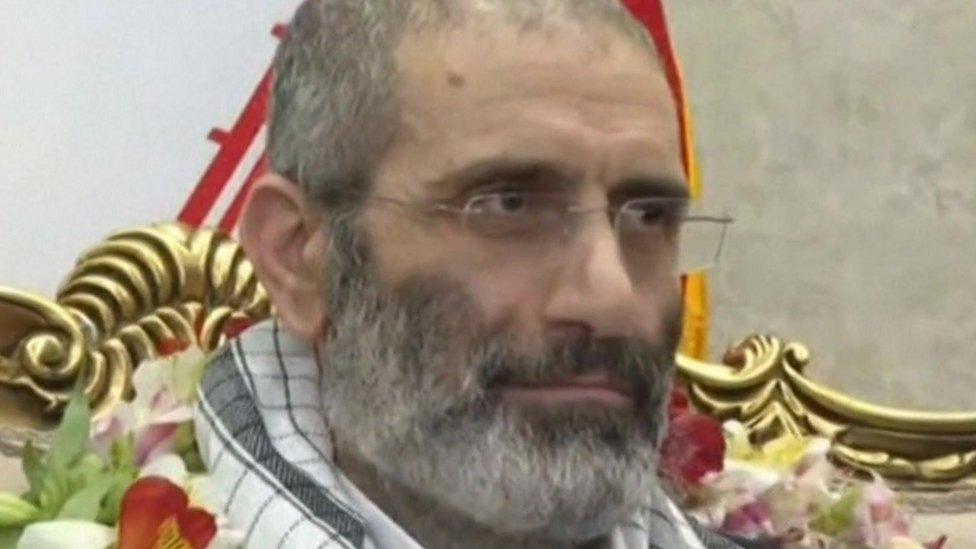
Assadollah Assadi was jailed for 20 years by a court in Belgium, which found him guilty of plotting a bomb attack
The Omani foreign ministry announced earlier that detainees released by Iran and Belgium had been "transported from Tehran and Brussels to Muscat".
"The Sultanate of Oman appreciates the positive high-level spirit that prevailed during the discussions in Muscat between the Iranian and Belgian sides, and their commitment to resolving this humanitarian issue," it added.
Belgium and Iran signed a controversial prisoner exchange treaty last year.
However, its implementation was held up until March by an unsuccessful legal challenge from the opposition group allegedly targeted by Mr Assadi, the Paris-based National Council of Resistance of Iran (NCRI).
Following his release, the NCRI - the political wing of the Mujahideen-e-Khalq (MEK) or People's Mujahideen Organisation of Iran (PMOI) - accused Belgium of paying "a shameful ransom to terrorism and hostage-taking".
It also said the move violated the Belgian constitutional court's order that the victims of a convicted person should be informed of a planned transfer, so that they could seek a judicial review of its legality.
Mr Assadi was serving as third counsellor at the Iranian embassy in Vienna, Austria, when he was allegedly observed by European intelligence services handing over explosives and a detonator to a Belgian couple of Iranian origin who were planning to bomb an NCRI rally.
He was arrested in Germany three days later, as he returned to Austria. A German court later ruled that his diplomatic immunity did not apply in Germany because he had been arrested while on holiday outside his host state. That meant Germany was able to extradite him to Belgium to face trial.
- Published10 January 2023
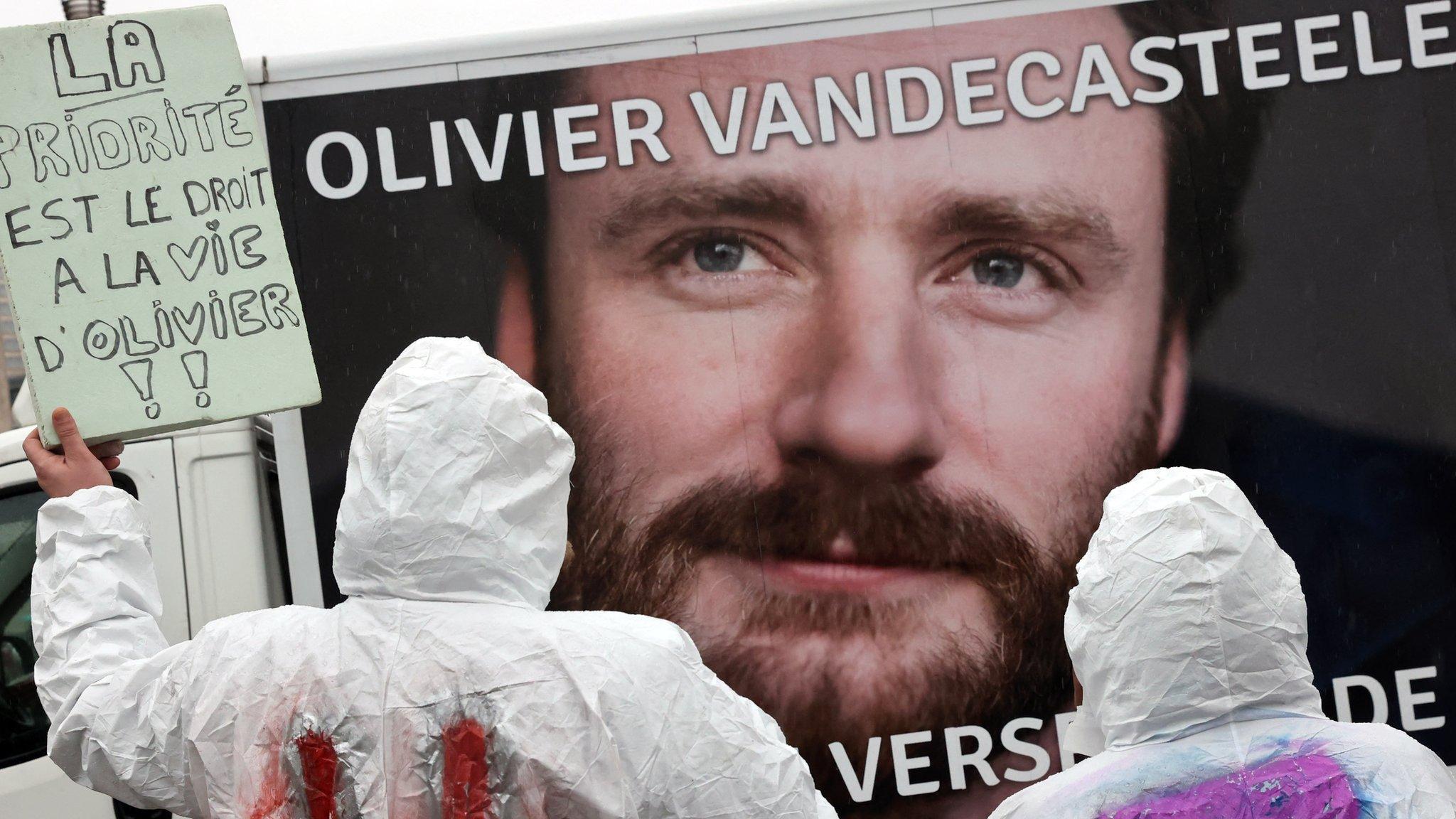
- Published5 July 2022
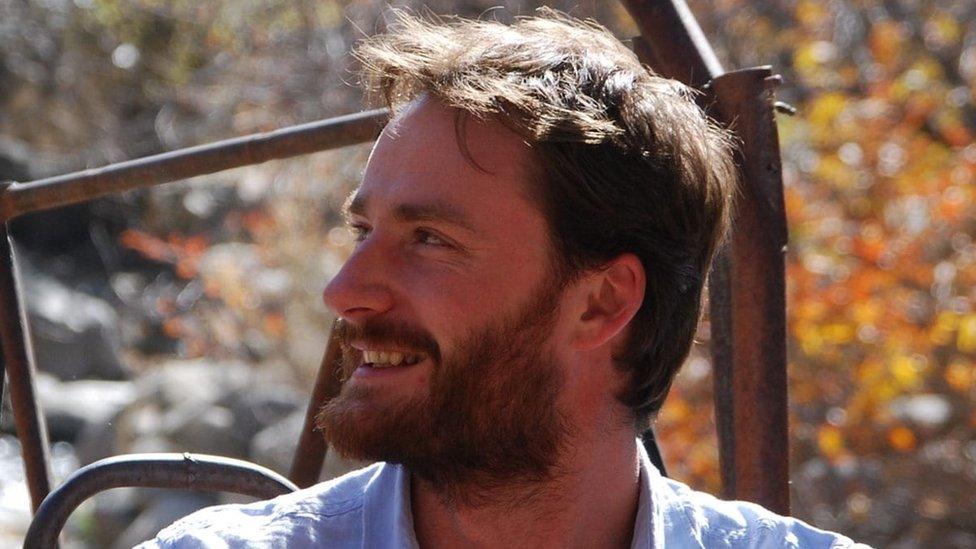
- Published4 February 2021
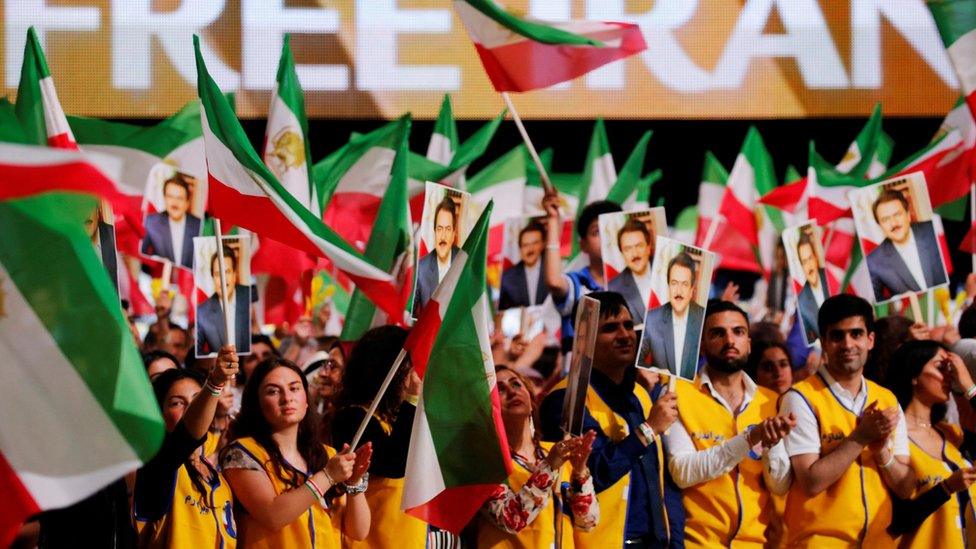
- Published27 November 2020
